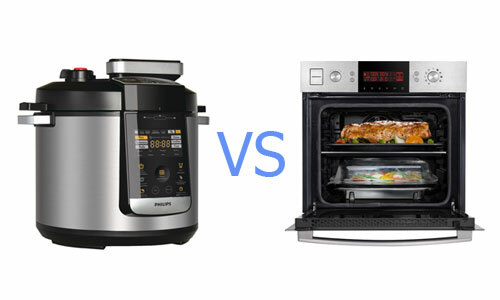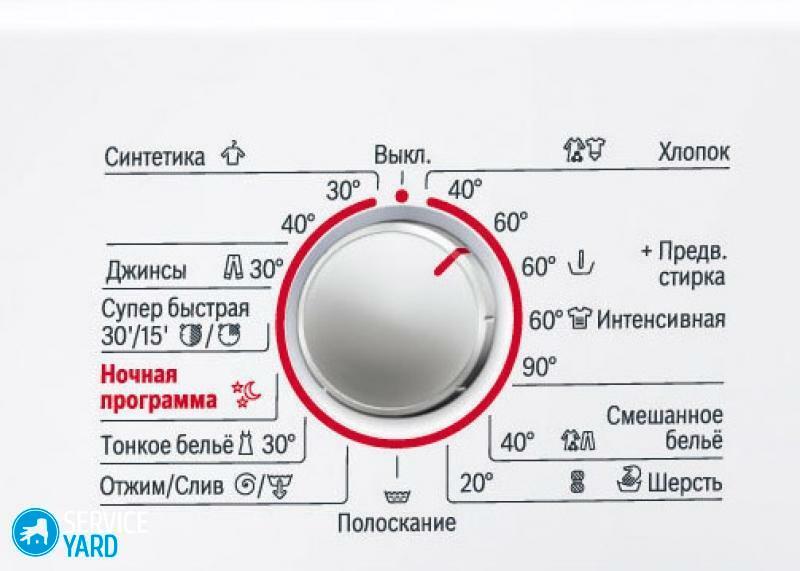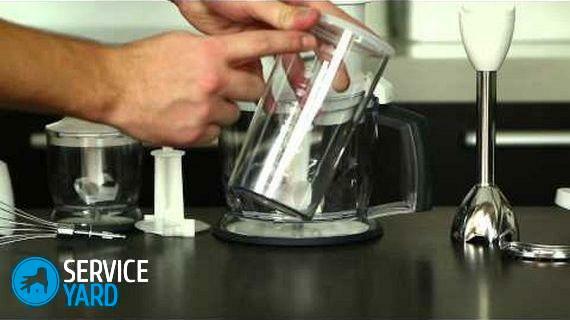In fact, it is in vain that anthropological scientists are struggling with the question of why the ape became a man. It's very simple: the reason is banal laziness. It is she who is the engine of progress. It was lazy for the monkey to climb a tree for a banana - she took a stick in her hands and knocked the banana off the branch. This is how, little by little, we find new solutions to satisfy our laziness with the help of various gadgets and mechanisms.
Take, for example, a special class of the urban population - summer residents. Someone who, and they are so inventive that it is simply amazing. High beds, self-heating systems for greenhouses, automatic watering - if you have all this in your garden, you are at the peak of the dacha evolution. If not, join us urgently. Today we will consider an autowatering system - it is very simple and you can do it yourself.
Read in the article
- 1 Types of automatic irrigation and their features: what to choose?
- 1.1 Car rain on the beds
- 1.2 Moisturizing the soil from the inside
- 1.3 Drip irrigation of beds and flower beds
- 1.4 Surface irrigation and its varieties
- 2 Principles of building an autowatering system
- 3 Automatic irrigation system diagrams
- 4 Where to get water for automatic irrigation
- 5 Making an automatic watering system with your own hands
- 5.1 Development of a plan and scheme for autowatering
- 5.2 Automatic irrigation hydraulics calculations
- 5.3 How to mount the supply pipeline for autowatering
- 5.4 How to assemble automation for automatic irrigation
- 6 How to correctly operate and maintain an autowatering system
Types of automatic irrigation and their features: what to choose?
Automatic watering means complete freedom from manual labor. You do not have to stand with a watering can or a hose over the beds, or drag buckets from the pool to warm water. This not only saves time, but also very significantly - energy. There are several options for organizing autowatering.
Car rain on the beds
This is a very popular method of irrigation, because in its mechanism it is the closest to natural processes. Sprinkling helps not only to wet the soil, but also to create increased humidity in the atmosphere above its surface, and plants, as you know, absorb moisture not only by the roots, but also by the foliage.
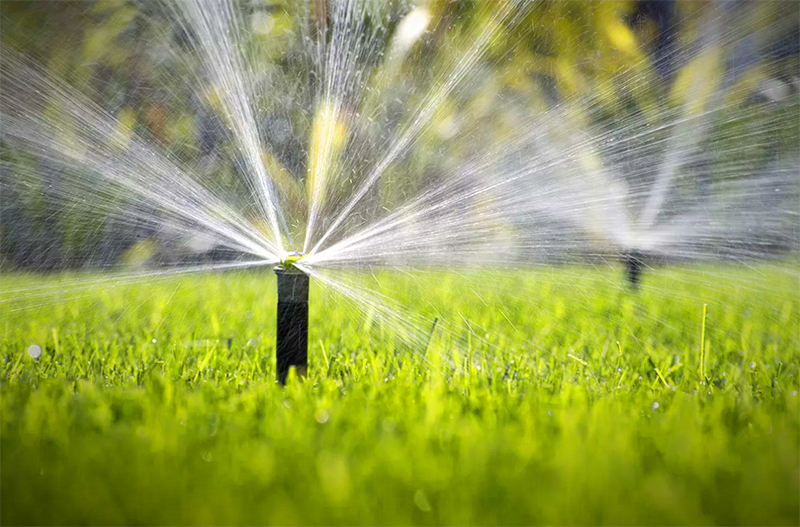
There are three types of irrigation sprinklers:
- Static, one-way. These sprinklers have one direction of spraying, it is usually used for flower beds or lawns, which are located next to some kind of fence or wall.
- Rotating rotary. These sprinklers are placed in an elevated stand in the middle of a flower garden or lawn. They distribute water evenly by rotating in a circle.
- Finely dispersed impulse. These devices have a ratchet mechanism that spreads moisture over long distances. Great for large lawns.
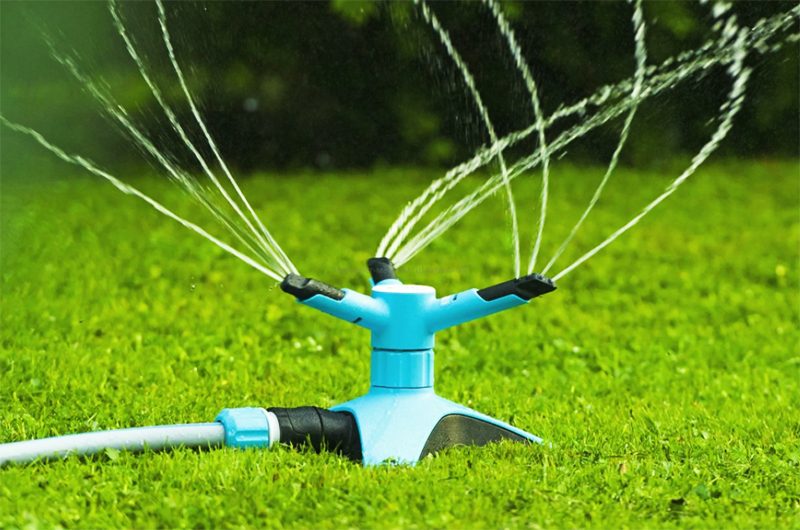
Moisturizing the soil from the inside
This automatic irrigation option is good because it delivers water directly to the plant roots.
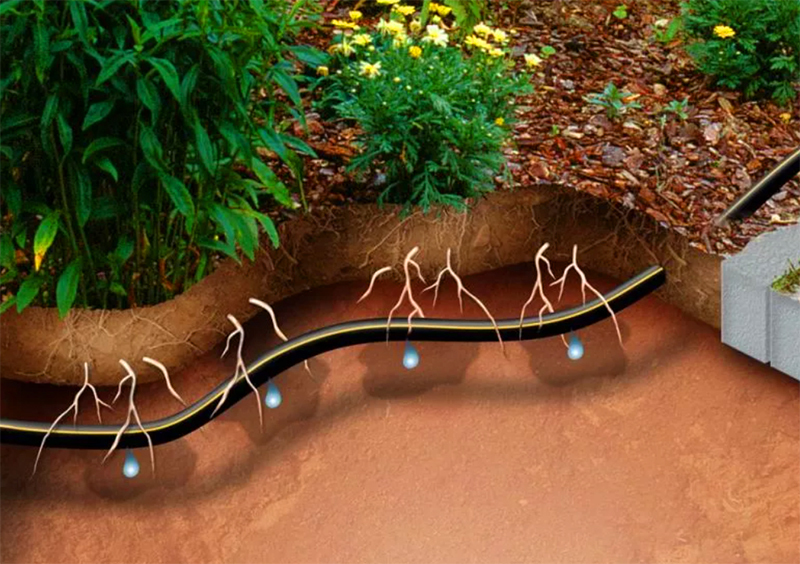
It turns out that much less moisture is required for irrigation, and this is a real economy without losing yield.
Drip irrigation of beds and flower beds
If you think about saving, then, without a doubt, drip irrigation will be the most budgetary. In this version, the water reaches the beds through pipes and then, with the help of special droppers, flows directly to the roots, but very slowly.
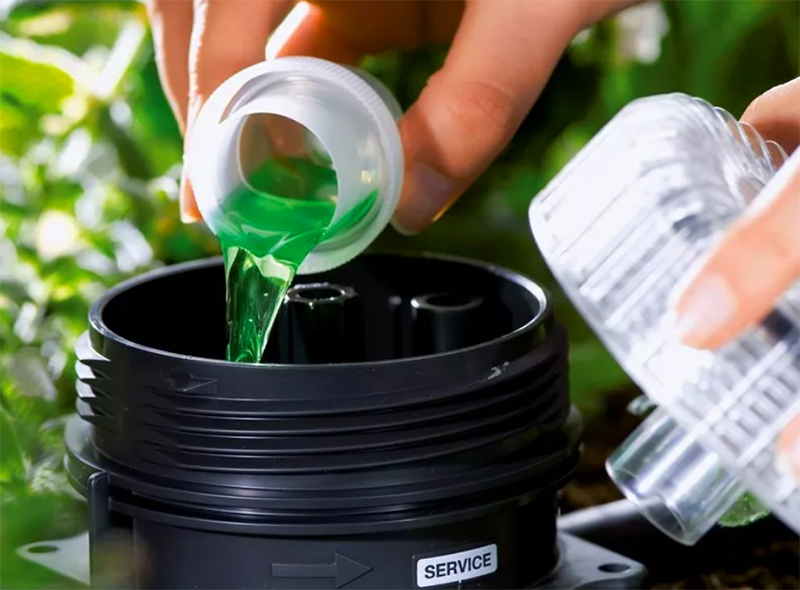
Garden drip irrigation systems require periodic maintenance, because small holes are constantly clogged with dirt or overgrown with salts if the water is hard.
Surface irrigation and its varieties
Surface irrigation is the simplest type of irrigation that does not involve spraying. Moisture is supplied to the plants through special channels. There are two types of surface irrigation:
- along ditches or furrows that are made between the rows of plants so that moisture, absorbing, gets as close to the roots of the plants as possible;
- with the help of a bubbler nozzle, which delivers water in a stream, but in a metered dose - a more or less economical option for irrigation.
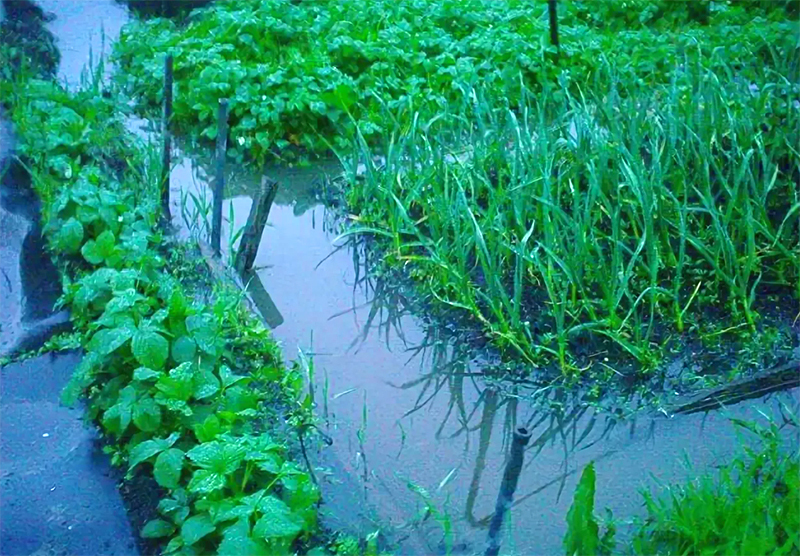
Principles of building an autowatering system
Automatic watering guarantees your plants intensive growth, flowering and fruiting. It can work even in your absence, of course, if the mechanism is configured correctly. This is very convenient for those summer residents who go out of town only on weekends.
The autowatering system consists of several parts that ensure its functioning. It has already been said about special irrigators that perform sprinkling, drip irrigation or surface irrigation. In addition to them, automatic operation will require valves that open or shut off the water at the right time, taps for connecting to a water source, hoses that go directly to the irrigation site, and a pump that pumps water if it comes from a reservoir, and not through highways.
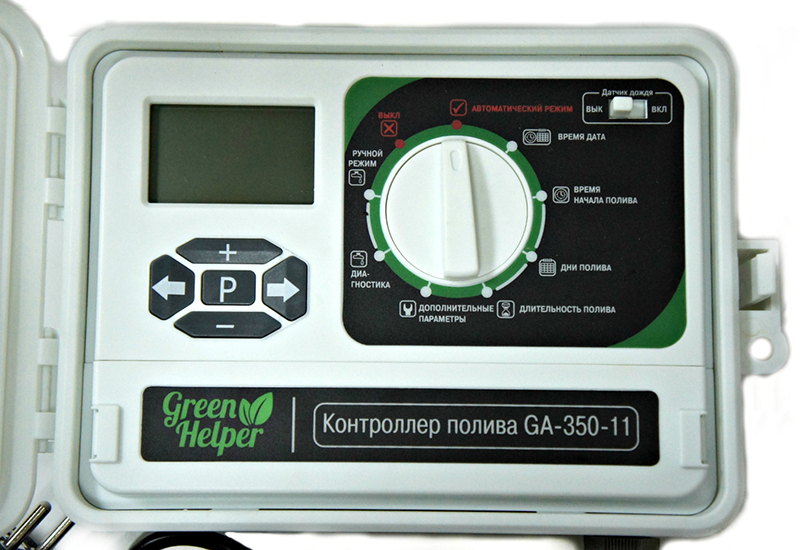
The autowatering system has its own disadvantages and advantages. If we talk about the pros, then it should be noted that SAP allows:
- manage irrigation by adjusting the volume of water and the frequency of irrigation;
- for each zone of your plantings, choose your own mode and intensity of irrigation;
- save water (systems based on drip and subsurface irrigation are especially economical);
- to leave the house for a long time to the owner of the site, without worrying about the fate of their landings.
Plus, smart autowatering systems don't work when it's raining, saving your budget.
But there are also disadvantages to this principle of irrigation. First of all, the creation of a system in the country requires financial investments in equipment. Not so cardinal, but you have to spend money. In addition, one cannot say about “set and forget” about automatic watering. Devices need to be monitored and serviced regularly to keep them functioning. And installation will require plumbing and electrical skills. If you don't have enough of them, you will have to invite a specialist to help.
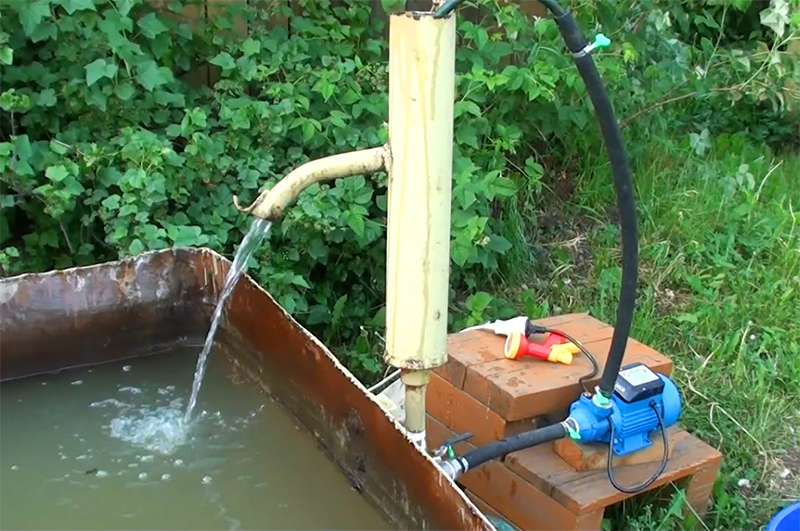
The consumption of the autowatering system requires a large amount of moisture. If your main system has a weak head, the system will not work. And, as you know, in the territories of dacha associations, it is with this very pressure that there are eternal problems. So you need a capacity. And the larger the irrigated area, the more spacious it should be. In addition, the capacity is also necessary because the water in it will warm up during the day, and the main water or moisture from the well always has a low temperature. Plants do not like this, they can get sick and even die.
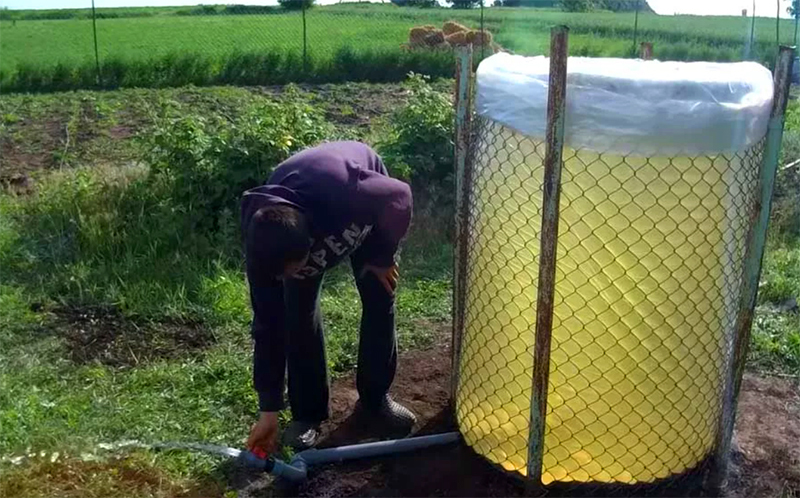
In order for water to come from a container with a regular pressure, the automatic irrigation system requires a pump. For this purpose, submersible pumps are suitable, which are placed in a tank and turned on by a command from the controller. The pump power is selected depending on the type of irrigation. The most powerful ones are required for sprinkling: for the sprayers to work, you need a good head.
Pay attention to the system management mechanism. You definitely need a timer that will connect the pump and regulate the number of starts during the day, and sensors that will prompt the system not to turn on if it rains and natural moisture occurs soil.
Auto irrigation remotes can be home or outdoor. Street ones are distinguished by hermetically sealed packaging. The autowatering consoles have standard programs that you can adjust at your discretion. For example, in the standard version, the system will turn on at 6 am and at 11 pm in the evening. You can change this time to a more convenient one for you.
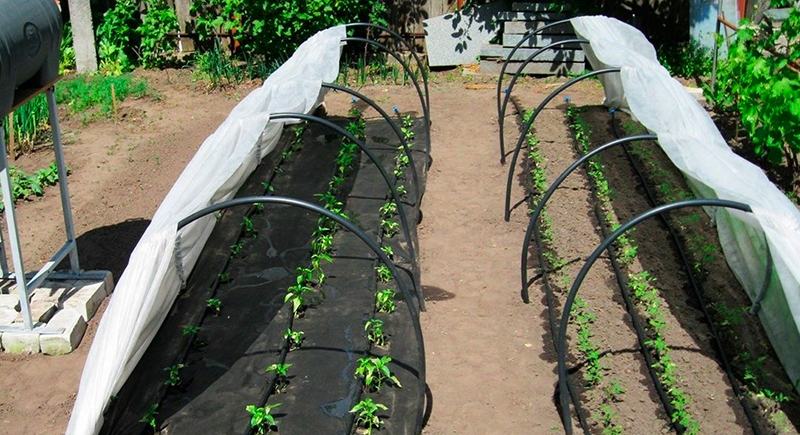
If the locations of the irrigation zones are permanent, it makes sense to lay the hoses underground so as not to stumble over them constantly and so that they do not interfere with the operation of the trimmer, lawn mower or other equipment.
To assemble the system, you will need various fittings, splitters, water sockets and other parts that will help you assemble a branched irrigation network.
Automatic irrigation system diagrams
In each case, the scheme of the autowatering device is individual. You can compose it yourself, having previously studied the number of points for irrigation and making your own requirements.
If you plan to apply fertilizer along with watering, you need to provide a node in the diagram for adding nutrients. Mineral and organic substances will be useful not only for garden crops, but also for flower gardens with lawns.
Determine the number of lines to irrigate - this will help you calculate the length of the hoses and the pump capacity you need to purchase. As for sprayers and droppers, their number directly depends on the number of irrigated plants.
An approximate watering scheme is shown in the photo below:
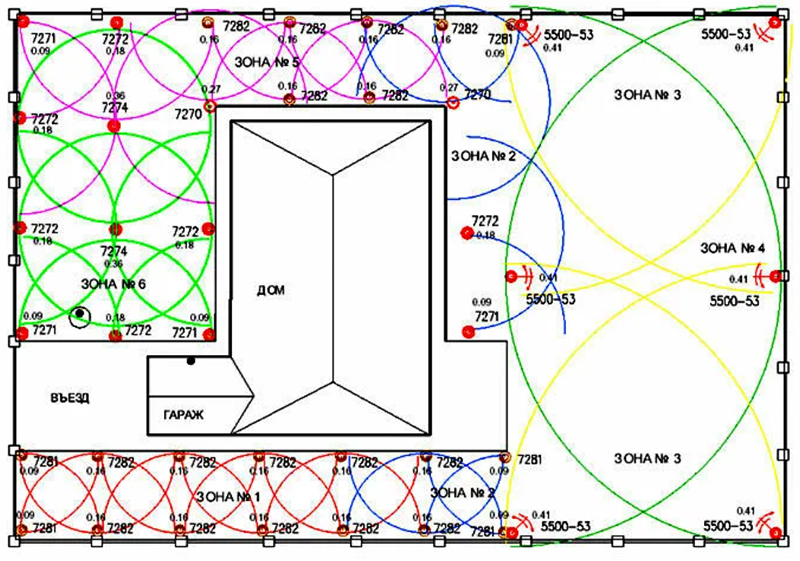
Where to get water for automatic irrigation
The most ideal option for irrigation is a natural source. If there is a river or lake near your site, spare the expense and run the water directly from there. This will translate into big savings in the future.
If there is a well on the site, you can also equip autowatering without any problems. But the water in the well is usually very cool, so you will first need to fill the container in which the water will be heated during the day to a temperature that is comfortable for plants.
All green spaces love rainwater. It contains a lot of trace elements necessary for growth and development.
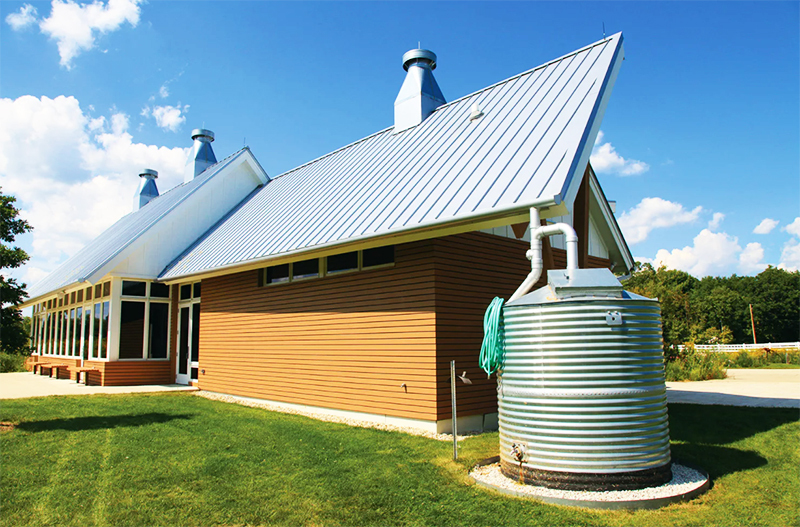
In any case, if there is a natural source, the autowatering system will need a set of filters: first coarse cleaning, then fine. Using sources without forced filtration causes quick clogging and clogging of nebulizers and droppers.
If your plans are to water from a container, then filling it can also be automated using a float system that works like a toilet cistern. When the tank is full, the float rises and shuts off the source.
Making an automatic watering system with your own hands
In order to assemble an autowatering system with your own hands, you need to work with the site plan, draw on it the location of all the necessary nodes. Planning includes calculations of pump power, cross-sections of supply hoses.
Development of a plan and scheme for autowatering
Transfer the drawing of your site to graph paper to scale. Mark the areas that you will irrigate, the location of the water sources. Already at this stage, you can easily calculate the length of the supply hoses and the number of branches.
When you determine where to water, study and select the type of sprayer. Each of them has a radius of action - place the spray points on the plan, taking into account this data.
Automatic irrigation hydraulics calculations
The calculations of hydraulics for automatic irrigation are not as simple as it seems at first glance. There are many variables that need to be taken into account: these are the rates of watering the plants, and the distance between the beds, the diameter of the supply and discharge pipelines. In fact, only professionals can make such accurate calculations.
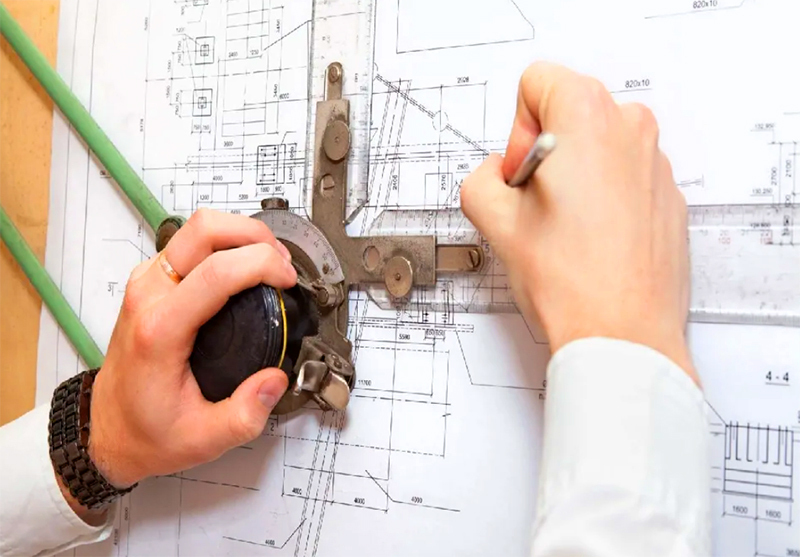
There is another, simpler algorithm that allows you to make calculations, not quite accurately, but more or less efficiently. Already at the stage of drawing up the scheme, you will know how many sprinklers you need. Each of them has a nominal flow rate in the characteristics. Add up all the data and you will get the total flow that the pump should provide at a head of 3-5 atm. Get a pump that covers the need half as much - you won't be mistaken.
If only a drip system will work for you, then gravity is enough for it, provided that the container with water is at least at a slight elevation, a stand for a barrel 40-60 cm high. A pump that is too powerful in the irrigation system can rupture the drip hoses - be very careful with this. Experienced summer residents recommend installing reduction gears for such a system in order to minimize pressure surges.
How to mount the supply pipeline for autowatering
There are two options for installing the supply pipeline: above ground or underground. Over the surface - a great option for temporary, seasonal watering. At the end of the season, you can disassemble the entire system. Suitable for areas in which you constantly change the planting pattern.
The underground method is the final version, which will no longer undergo changes. Suitable for stationary beds, flower beds and lawns. Hoses or pipes for such a system are deepened at least 30 cm.
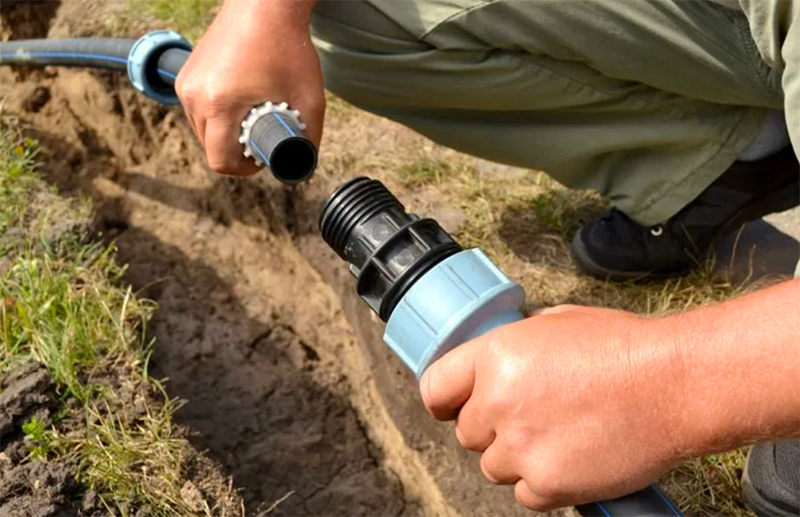
Often for the main line, the pipe is laid under the garden path, and already from it to the sides, points are brought out to the surface for connecting ground hoses.
The best option for the autowatering line is polymer pipes that are not afraid of corrosion and are very easy to assemble with fittings. The easiest option for assembly is HDPE pipes, which are connected with threaded fittings. You don't even need a special welding machine.
If you do not disassemble the system for the winter, it is imperative to install a valve at the lowest point for complete drainage. So you can be calm for the integrity even in severe frosts.
How to assemble automation for automatic irrigation
Automation is an important part of an autowatering system. She can completely relieve you of the worries about the site. But it is important to correctly assemble and configure the control panel. For more information on how to make drip irrigation yourself, see a short video:
How to correctly operate and maintain an autowatering system
In order for the autowatering system to work efficiently, it is important to properly operate it during the season, to preserve it and remove it from preservation.
In season:
- observe watering norms, do not allow the soil to become waterlogged - this can lead to rotting of the plant root system;
- at least once a month, conduct a thorough inspection of all sprinklers and clean them of any contamination;
- connect the automatic irrigation controller to an uninterruptible power supply so that the settings do not go astray in the event of a power outage;
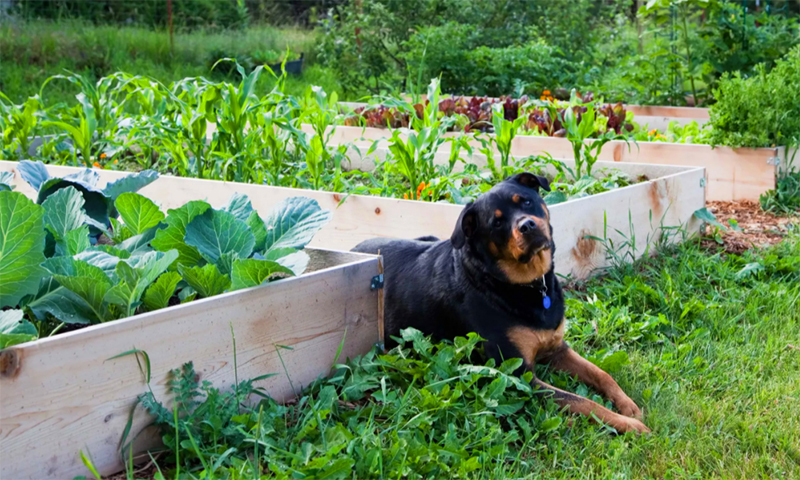
- do not install lighting devices in the irrigation area - this will not only interfere with uniform irrigation, but can also lead to a short circuit.
Conservation:
- the conservation procedure must be carried out without waiting for the onset of frost;
- shut off the access of water to the system, completely empty it and blow it out with an air compressor so that there is no water left even in the droppers;
- the storage tank must also be completely freed from moisture;
- the system is disconnected from the power supply, the outdoor controller is dismantled and stored in a dry warm room;
- it is better to remove the spray nozzles or, if this is not possible, cover them to protect them from contamination.
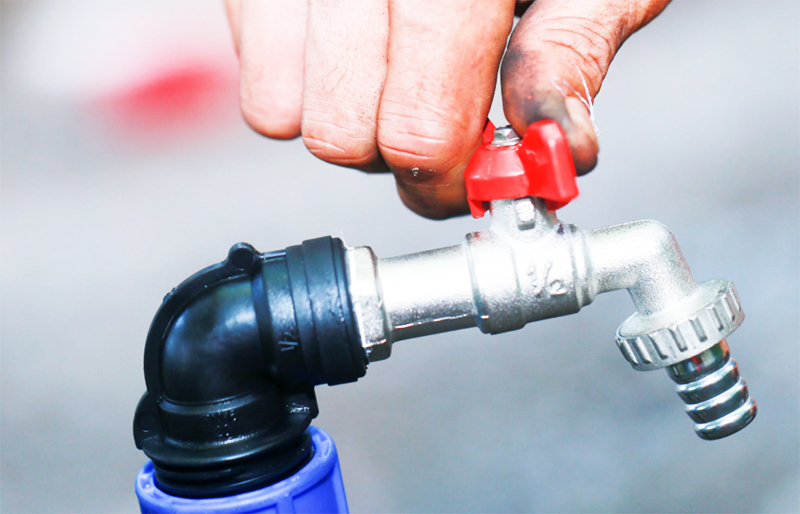
De-preservation:
- you need to start the system no earlier than a stable temperature above 3 ° C is established;
- first, the controller, pump and removable parts of the system are installed;
- all plugs are installed on the hoses, the nozzles are checked and cleaned;
- the tank for storing water is filled, the operation of the valves is checked;
- after starting the pump, the system is checked for possible leaks.
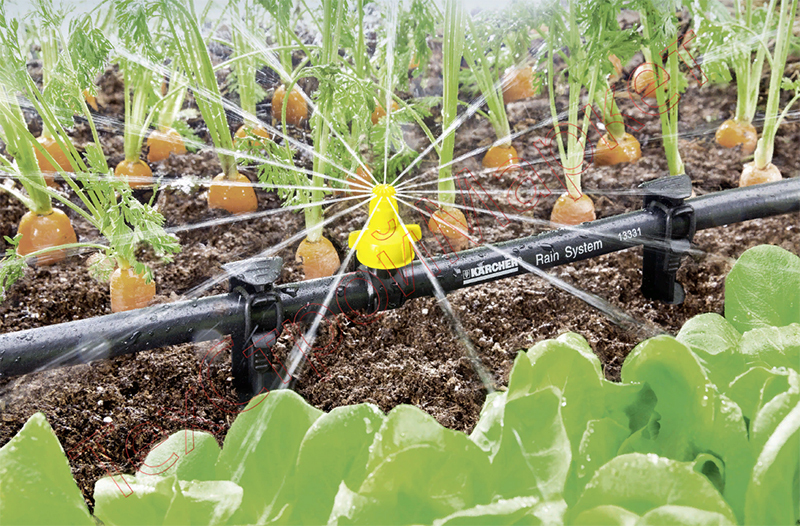
With consistent and regular maintenance, your irrigation system will last for decades.
Do you use automatic irrigation at your site? Maybe you can recommend automation manufacturers? Share your opinion in the comments!
and if the top layer of foam is not disturbed, then the lacquered surface greatly reduces the hygro ...
strange reasoning about sealing. If a log is poured with sealant, foam ...
In the 80s he worked in one NGO, then the hammer enamel was sintered. It turned out great, n ...
While in the summer I lived at the dacha, I saw many different situations and no one fined anyone. Uch ...
You cannot find a normal apartment for such a sum in Moscow. Even for a country house that ...
Thank you. Briefly and clearly...
Karting. I want to help children! & nbs ...
Now there is a very interesting and efficient option for heating - plasterboard pa ...
Everything is gorgeous, but always the emphasis on the ratchet. And for me, for example, it is technologically not p ...
yes indeed. if you don’t get them, no one showed up for the whole year, they began to hear ...
Why sheathe the house initially with vapor barrier? The meaning of it? To create a place of condensation ...
A little more than a month ago, I was looking for an Electrolux heating kit for a loggia. We have a lodge ...
In general, I support it, only concrete does not lose its properties after wintering, especially if you w ...
The heating kit revolts was taken to the bathroom. When there was no heating in the interseason ...

